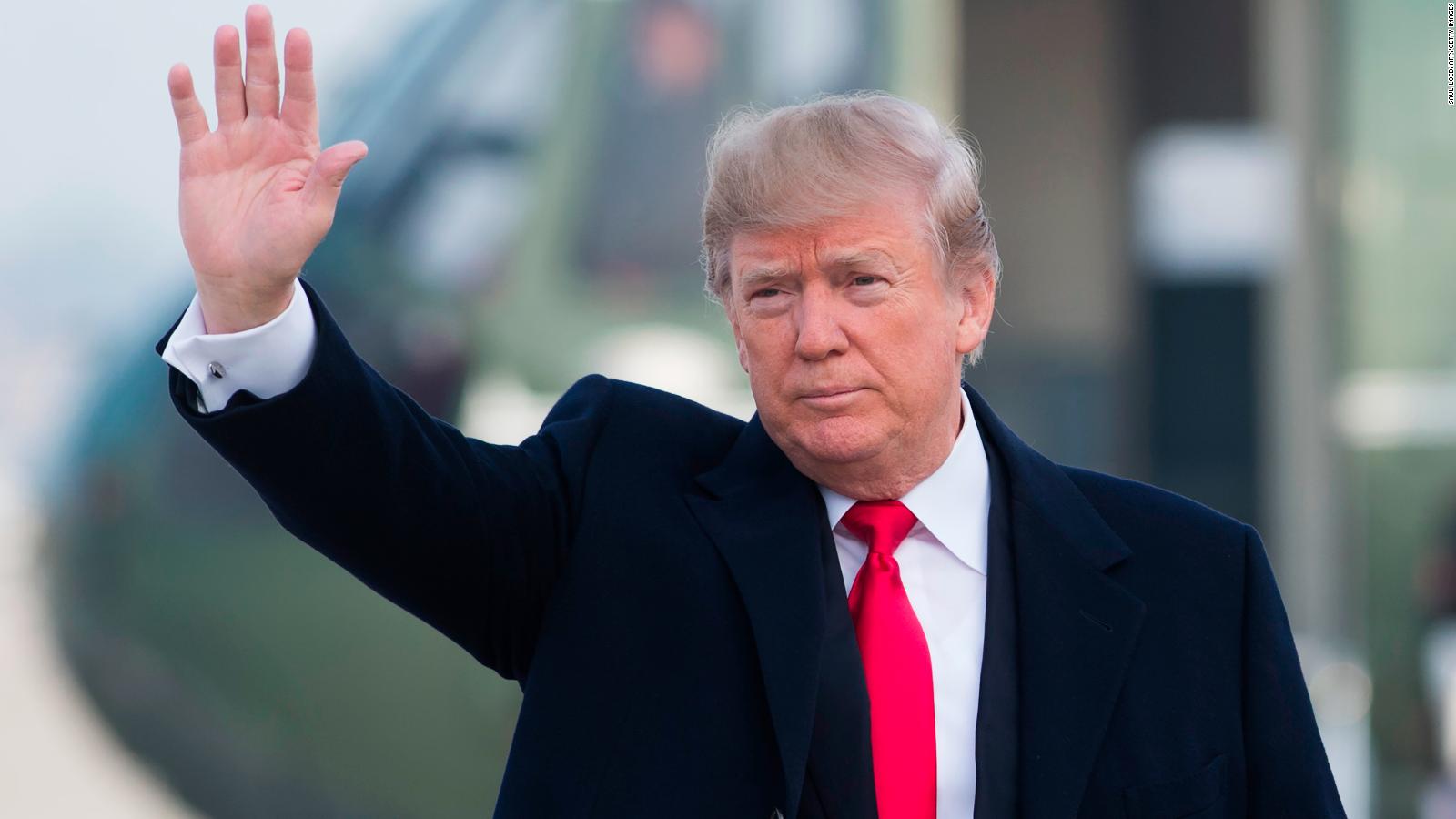begin quote from:
The exhausting first year of Trump's presidency
analysis
Conventional measures fail to encapsulate the utterly abnormal presidency that is unfolding
The exhausting first year of Donald Trump's presidency
Story highlights
- He trampled the unifying conventions of the inaugural address by decrying "American carnage"
- Conventional measures fail to encapsulate the utterly abnormal presidency that is unfolding
Washington (CNN)It
will be impossible to adequately explain in decades to come just what
it was like to be alive in the exhausting first year of Donald Trump's presidency.
From the moment he trampled the unifying conventions of the inaugural address by decrying "American carnage,"
Trump shattered political normality, tearing at racial and societal
divides, the limits and decorum of his office, even raising doubts about
his fidelity to the nation's founding values.
Trump
is like a raging storm that never blows itself out, as his early
morning Twitter rants injected into the nation's central nervous system
trigger outrages that obliterate traditional political debate and make
days feel like weeks, weeks feel like months and months feel like years.
The
normal tools for judging a presidency -- legislation passed, America's
relative global power, the health of the economy, the President's
approval rating and the security and prosperity of the populace -- can
be used to assess Trump.
But such
conventional measures fail to encapsulate the utterly abnormal
presidency that is unfolding or the way Trump, who craves attention and gets it by fomenting chaos, has barged his way into every corner of national life.
On Sunday, in the wake of his reported comments about "shithole" African nations, he told reporters "I am not a racist." The declaration itself speaks to how unusual his unfolding presidency is.
Everyone,
from the sidelines of a kid's soccer game in the suburbs to subway
passengers in the cities to the hotbeds of Trump country, has an opinion
on the President. He's impossible to ignore and impossible to escape.
And
that is exactly the way he likes it. For Trump, the presidency seems as
much about orchestrating strife in the center of a whirlwind as he
tilts at national taboos as it is the steady accumulation of political
and global victories.
Winning
Yet,
on its own terms, Trump's presidency has also delivered. His Cabinet
members are implementing a hardline conservative agenda that is quietly
reshaping America. His judicial appointments will remake jurisprudence for a generation to come. His tax law and it's 14-percentage-point corporate tax rate cut could,
according to the administration, open a gusher of cash and create jobs
and repair the industrial fabric of Midwestern states that made Trump
president.
But while he's doggedly
carried out some of his most controversial campaign promises, Trump's
wins have been overshadowed by behavior that electrifies his supporters
but causes offense to many others.
It's a paradox that the economy is roaring, the stock market is soaring, unemployment is at 17-year lows and ISIS is all but defeated, yet the President's approval ratings are the lowest of any new commander in chief. Trump has repeatedly expressed his frustration over that disconnect.
"I
don't think any administration has ever done ... what we've done and
what we've accomplished in its first year," Trump told his Cabinet last
week. "The achievements for our country, our people, and for our
standing in the world have been very monumental."
In
one sense, Trump is right: No administration has done what his has
done. But his remarks were typically Trumpian, overstating his
achievements and showing a tendency to create his own reality in a
presidency that has posed unprecedented challenges to truth and fact.
Trump will have been president for just one year on Saturday. But he has racked up a record of blowups, feuds and stunning episodes that would make a full two-term administration look full, and scarred by scandal and acrimony.
There
was the bizarre dispute over the size of his inaugural crowds, the
departure of national security adviser Michael Flynn, the travel ban,
the claim that he was wiretapped by the Obama administration, the
airstrike on Syria and the installation of Supreme Court Justice Neil
Gorsuch.
The crazy cascade of
events continued with his firing of FBI Director James Comey, the
arrival of special counsel Robert Mueller, the mushrooming probe of the
Trump campaign's possible role in Russia election meddling, Trump's claim he saw MSNBC anchor Mika Brzezinski
bleeding from cosmetic surgery, the botched repeal of Obamacare, his
equivocation over neo-Nazi marchers, West Wing chaos ... and that time
the President looked directly into the sun during the eclipse.
There
was the once-in-a-generation tax cut, the attacks on socially conscious
NFL players, the self-combustion of former chief White House strategist
Steve Bannon, the bizarre public inquest into whether the President of
the United States was fit for office following revelations from Michael Wolff's stunning book and his incendiary nuclear taunting of "Little Rocket Man" Kim Jong Un.
That's not even close to a comprehensive list.
"Every
day, there is another thing. This like reality TV, right? It's not
healthy for our country or the world," Ohio's Republican Gov. John
Kasich told CNN's Jake Tapper on Friday.
Institutions under assault
If
there is one underlying theme of Trump's first year, it is his
willingness -- whether in his disregard for ethics norms relating to his
business empire or his belief that he has the "absolute right" to do
what he wants with the Justice Department -- to flout every expectation
and constraint of his office.
It's a
trend evident in his assault on institutions that act as checks on his
power, like the intelligence agencies, the judiciary and the press, that will bear the scars after he has left the Oval Office.
"Donald
Trump has no regard for rules, he has thumbed his nose at rules his
entire life," said David Cay Johnston, a Pulitzer Prize-winning
journalist who has known Trump for 30 years and has a new book out on
Trump's presidency coming on Tuesday.
"He
is a dictator in waiting, he talks as a dictator and he will do
whatever he wants," said Johnston, whose book "It's Even Worse Than You
Think: What the Trump Administration is Doing to America" concludes that
Trump is unique in being the only US president not to pursue policies
in the national interest.
"The Trump presidency is about Trump. Period. Full stop," Johnston writes.
If that is true, the political system itself is facing an unprecedented challenge.
Indeed,
the President's recent assault on the credibility of the FBI and the
Justice Department, interference being run by Capitol Hill Republicans
on the Russia probe, combined with attacks on Mueller by pro-Trump media
outlets raise profound questions about the system of checks and
balances.
At
this point, it appears far from certain that should the special counsel
find that Trump obstructed justice or colluded with Russia in the
election, the GOP-led House and Senate would move against him and
consider whether he is guilty of high crimes and misdemeanors. That fact
alone means the 2018 midterm election -- in which Democrats are
targeting big wins -- could end up being effectively an impeachment
referendum. Trump has vehemently and repeatedly denied any wrongdoing.
An underrated aspect of the President's year is the way he has cowed the Republican Party itself.
He
appears to have destroyed the insurgent platform of Bannon after his
former political adviser cooperated extensively with Wolff. Republican
senators, such as Bob Corker and Jeff Flake who criticized him, have
only done so as they choose to end their political careers. The ire of
Trump primary voters keeps many other critics quiet. And Paul Ryan's
praise for Trump's "exquisite" leadership after the tax law passed last
year signals that the House speaker will stay aboard the Trump train as
long as his long-wished for conservative program is signed into law.
And
while his agency chiefs are implementing that program, critics argue
that many -- Education Secretary Betsy DeVos or EPA Administrator Scott
Pruitt for instance -- are either unqualified or are embarked on an
ideological project to dismantle government itself.
Trump's
authoritarian reflexes meanwhile have been revealed in his demands for
his political enemies, including Hillary Clinton to face prosecution and
his call just last week for libel laws to be tightened to punish his
media critics.
Changing the world
It
is not only domestic political structures that are being put under
duress by this most abnormal presidency. Trump has initiated a
fundamental shift in the nation's global role in the past year.
The
President's national security adviser HR McMaster declared last month
that under Trump, America had reclaimed its "strategic confidence."
The
administration has unveiled a national security strategy aimed at
"revisionist powers," such as China and Russia, that targets "rogue"
regimes, such as Iran and North Korea and jihadist groups. Yet Trump's
actions, often appear to run counter to that strategy as he idolizes
Chinese leader Xi Jinping and Russian President Vladimir Putin, and his
foreign policy choices seem dictated not by global strategy but the
desires of his political base.
Again, there have been clear successes.
His
administration intensified and delivered on the Obama administration's
plans to defeat ISIS in Syria and imposed the most stringent ever
sanctions against North Korea.
But
as at home, Trump's own actions, wild tweets and "America First"
instincts have overshadowed his achievements. He's made the US, for so
long a bulwark of global stability, into an agent of disruption and
unpredictability. His rhetoric on race and religion threatens to dim the
power of America's example.
Many
nations, China included, see moves like pulling out of the Trans-Pacific
Partnership trade deal, quitting the Paris climate accord and cutting
foreign aid as a sign of a US retreat, even if US military might remains
unchallenged.
What's next?
A
fateful question when Trump took office after a riotous outsider
campaign was whether the presidency would change him or he would change
the presidency.
It's now clear that
the responsibilities and power that sobered most of the 43 individual
men who held the job before him have not transformed Trump.
His
unrestrained approach is the reason people who love him support him
even more intensely one year in, but it's also why a majority of the
nation fears he's disastrously unsuited to the job and why his immediate predecessors in the President's club, in a highly unusual move, have repudiated him.
Trump
remains uncouth, unrestrained and unrepentant. That's why his second
year is likely to be even more draining and disruptive than his first.
































































































No comments:
Post a Comment